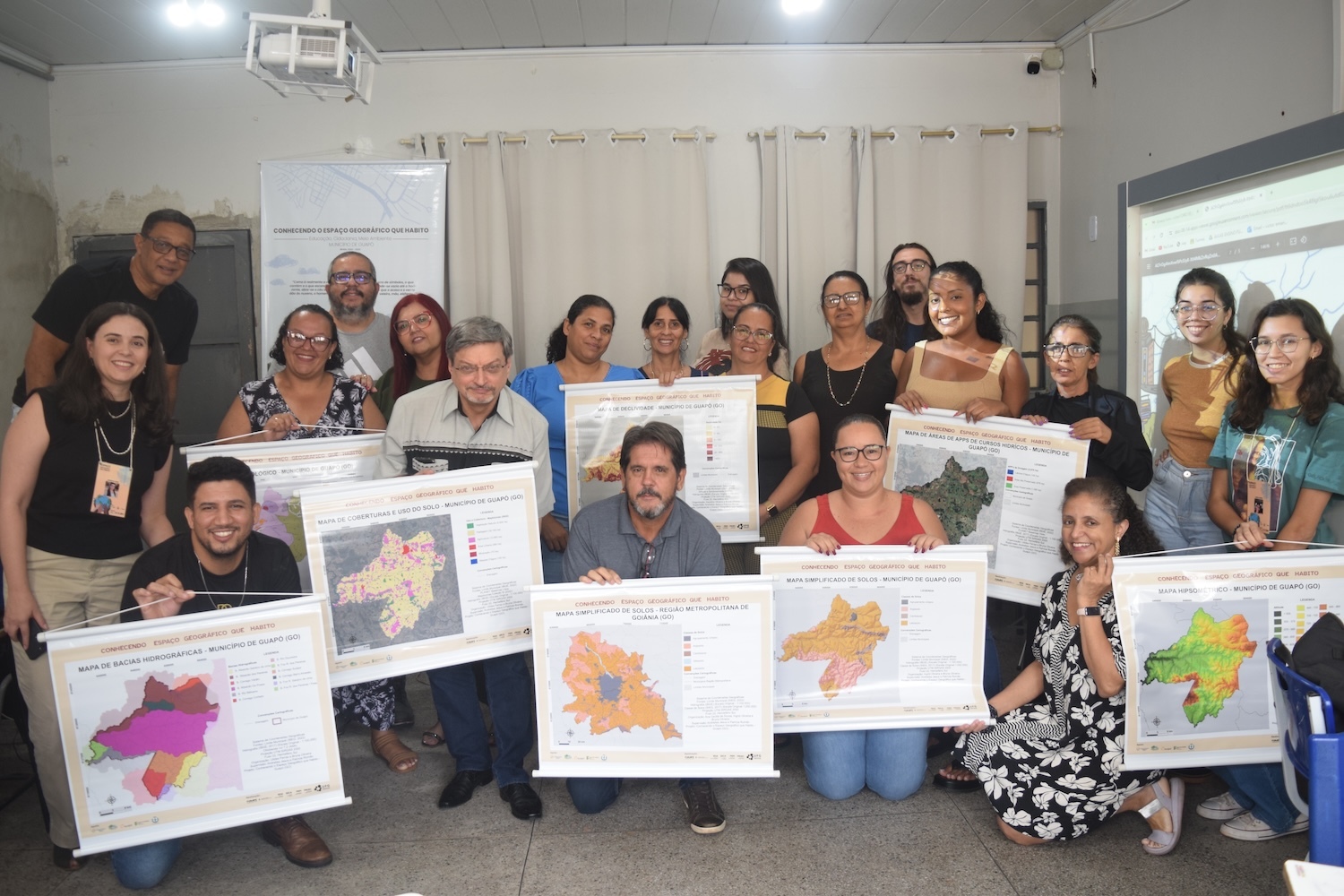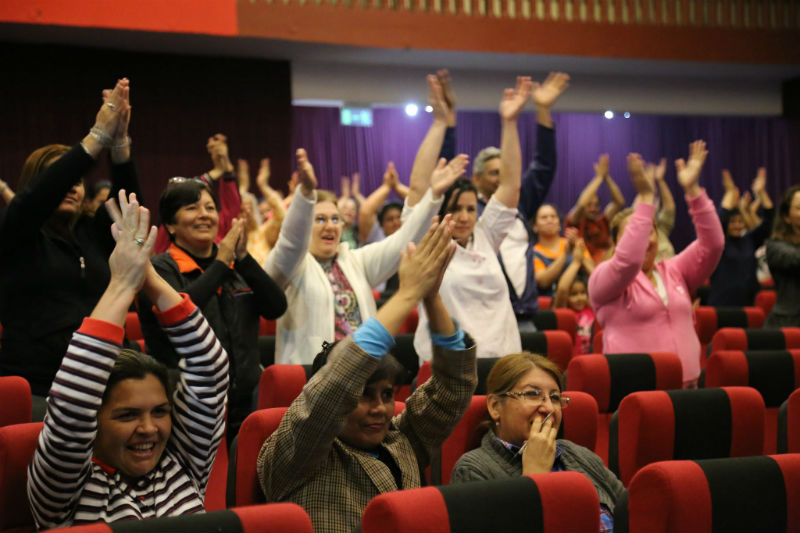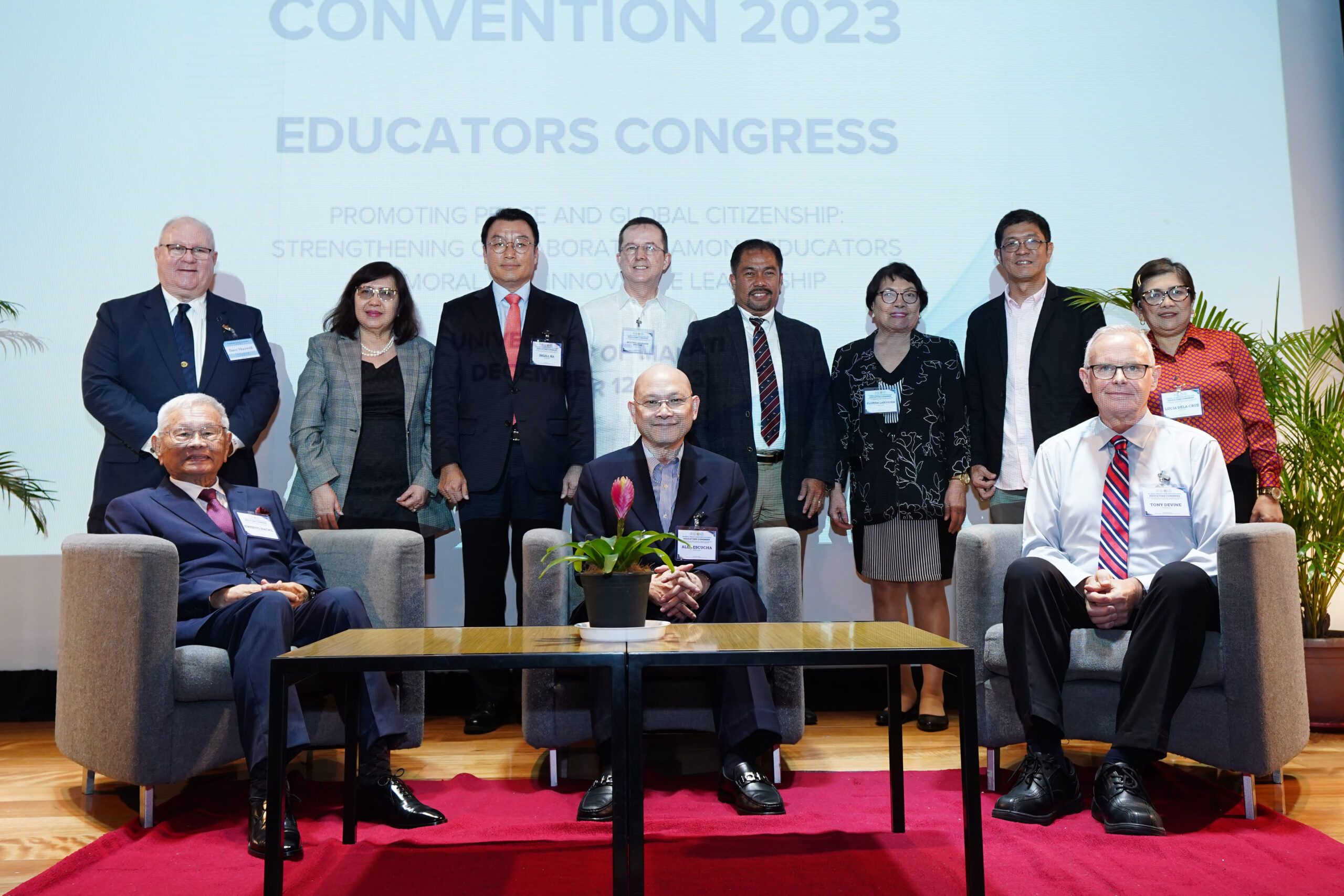An international panel of educators presented wide-ranging perspectives on future-ready education, with a focus on adolescent developmental challenges, rapid social and technological changes, and evolving twenty-first century workforce skill sets.
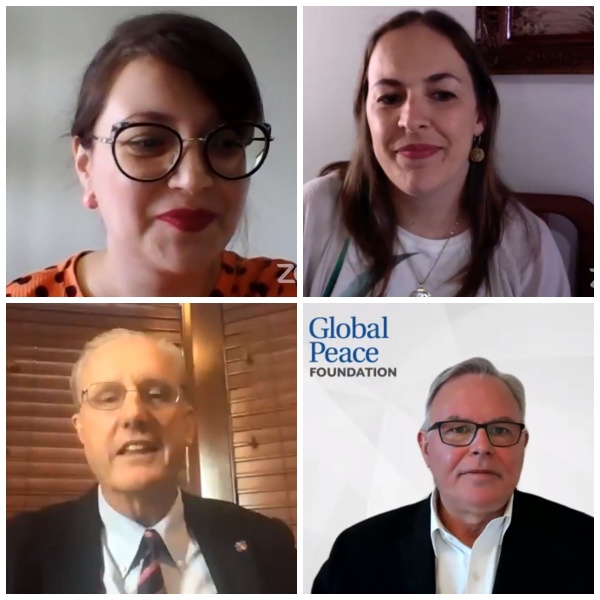
Panelists clockwise from from top left: Dr. Stephane R. Dias (moderator), Dr. Aline Lorandi, Dr. Tony Devine and Joe Carvin.
Hosted by the Brazilian Federal Institute Farroupilha Advanced Campus Uruguaiana and the Global Peace Foundation Brazil on April 14, 2021, the virtual forum, “Attitudes, Values and Skills Essential for Future-Ready Education and Success,” engaged panelists from Brazil, Ireland, and the United States, with participation of education professionals from across Brazil.
Introducing a common theme, Joe Carvin, founder and executive director of One World, stressed that all people share an essential human connection, that humanity needs new forms of global cooperation and respectful conversations across borders to learn with and from one another.
Carvin highlighted the dramatic difference between a “linear world” and a “world of exponential change” that the next generation will inherit. The difference he said is between taking 30 steps vs a billion steps, to cross the room or circle the globe 25 times. Citing Moore’s Law, which tracks the exponential growth of computer processing power, Carvin said we need to prepare students for 20,000 years of change in their lifetime. “How are we doing? In the twenty-first century, we have a bizarre combination of Stone Age emotions, medieval beliefs and god-like technology.”
“It has never been more important to be an educator,” Carvin said. “The world needs the next generation to develop its character to think logically and take collective action, to value every member of the human community, and to guide the deployment of technology to eliminate poverty and hunger.”
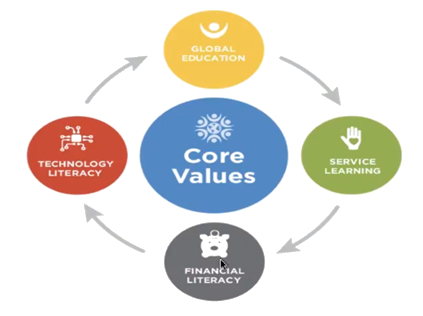 Addressing the forum from Seattle, Global Peace Foundation Vice President for Education Dr. Tony Devine said “values are the core competency” that could guide the development of skills and new knowledge, which can be applied to address the pressing global problems that threaten the social and natural environment.
Addressing the forum from Seattle, Global Peace Foundation Vice President for Education Dr. Tony Devine said “values are the core competency” that could guide the development of skills and new knowledge, which can be applied to address the pressing global problems that threaten the social and natural environment.
Dr. Devine has been instrumental in promoting and implementing values-centered curricula and future-ready workforce readiness in Africa, Asia, and South America in collaboration with ministries of education and private sector stakeholders. He said teachers need to have the “life arc of student in mind,” serve as role models, and cultivate critical thinking among students. Teachers must become “designers of learning and master facilitators” who can spark creativity and curiosity, he said.
Brazilian educator Aline Lorandi drew attention to the common problem of students’ lack of interest or motivation in the classroom. The brain’s prefrontal cortex, responsible for the ability to plan, make decisions, and weigh causes and consequences, is the last to develop in childhood and adolescence, she said.
“The world needs the next generation to develop its character to think logically and take collective action, to value every member of the human community, and to guide the deployment of technology to eliminate poverty and hunger.”
“The executive function is underdeveloped and under stimulated and this often creates the need to take risks,” Lorandi explained. “I believe our role as teachers is to stimulate these functions, to ‘lend’ our prefrontal cortex as adults and teachers and provide challenging environments, while advising them how to use their executive functions allowing them to participate in decision making.”
The forum was moderated by Dr. Stephane R. Dias, professor of linguistics at the Federal Institute of Education, Science, and Technology Farroupilha – Uruguaiana /RS, Brazil. Carlos Rodrigo Lehn, Dean of Institutional Development at the Federal Institute of Education, Science, and Technology; and Massimo Tromblin, CEO of Global Peace Foundation Brazil, also gave welcoming remarks.
For the full video forum visit Global Peace Foundation Brazil Facebook. For more information on the Global Peace Foundation’s education initiatives, visit Global Peace Education.

